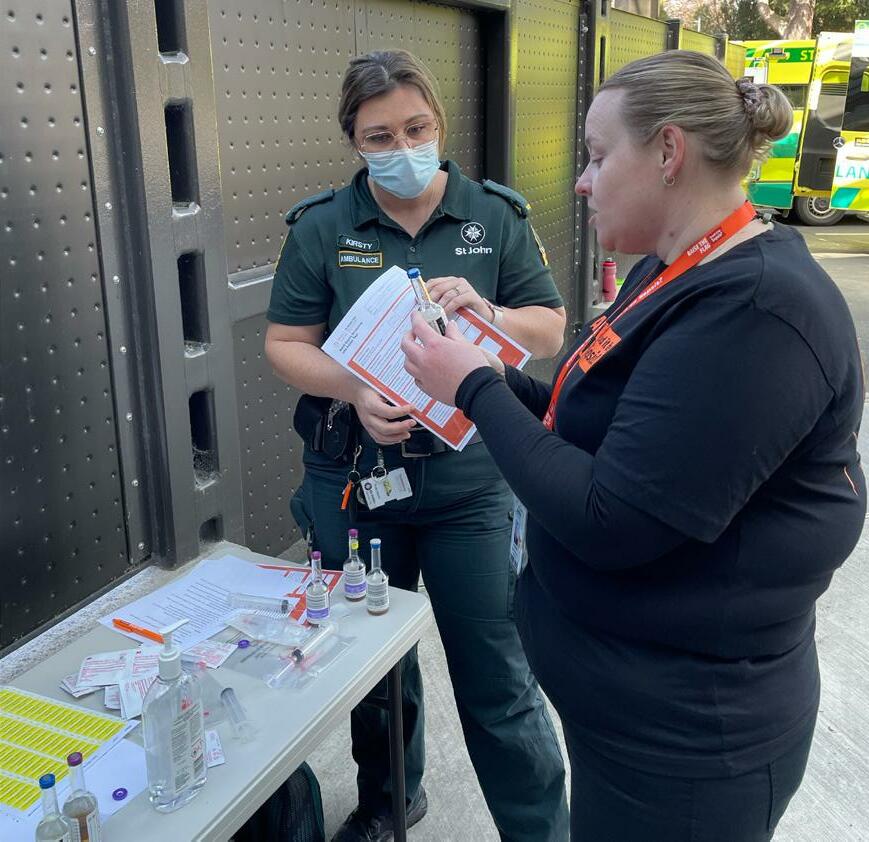
2 minute read
› Raise the flag - Sepsis programme
They are vulnerable, their trajectory is unclear, and their needs can be complex. “Communication is really important in our line of work; both with the patient and whānau but also within the team. Often the patient and whānau are missing key information, what options there are for treatment and recovery, and what needs to be done to achieve discharge from the hospital bed.” Whānau and patients like a pro-active process where they know there is a time and place to talk to the team and raise concerns.
The question whānau most commonly ask is “what can we be doing to help?” and if the healthcare team can empower them with the right information to help recovery or plan for the future, then it benefits everyone, Emma says. After evaluation, refinement and feedback PIT Stop is starting to be rolled out on other Older Persons Health wards. “It is exciting to have found a new way of working that better serves our patients, enhances teamwork and gives us a sense of satisfaction.” From the beginning Jools has been a key driver of this project. “As soon as she heard the idea of including the patient in a weekly team meeting, her immediate response was ‘yes, when can we start? Jools has such a capable, positive and enabling style of ward leadership which has been integral to the success of PIT Stop.” Jools leads from the front, and comes to every PIT Stop. She trusts her nursing staff, values their time and skills and supports them to give their best to the team. She is a fantastic clinical leader who has shown huge commitment to this project, driven by her value of high quality patient-centric care. She is now lending her ideas and skills to other wards at Burwood as the PIT Stop process rolls out more widely, Emma says.
Advertisement
Raise the flag – The sepsis programme launched at the Christchurch Hospital campus on World Sepsis Day, 13 September. It was promoted through the Emergency Department (ED) education/refresher session, showcasing the new adult sepsis pathway and the new blood culture pilot by St John ambulance teams, held outside in the ambulance bay. “As sepsis is such a big part of our patient assessment work in ED, we considered this to be an excellent opportunity to join with the Christchurch St John ambulance team to consider if there was anything we could do to make our diagnosis and treatments more effective and efficient to improve patient outcomes”, says Registered Nurse in ED Sarah Mills.
“The ED collaboration with Christchurch St John allowed us to promote and discuss the new sepsis pathway as well as the new blood culture pilot being implemented for St John ambulance staff for the taking of blood cultures en route to hospital. “It was wonderful to have clinical and ambulance staff working alongside each other to create more awareness around sepsis and the importance of recognising sepsis and treating it, both pre-hospital and in ED.” This event created lots of positive feedback on both the pathway and blood culture pilot with great learnings all round, Sarah says.


Kirsty Reekers from St John Ambulance talks with ED Registered Nurse Sarah Mills


